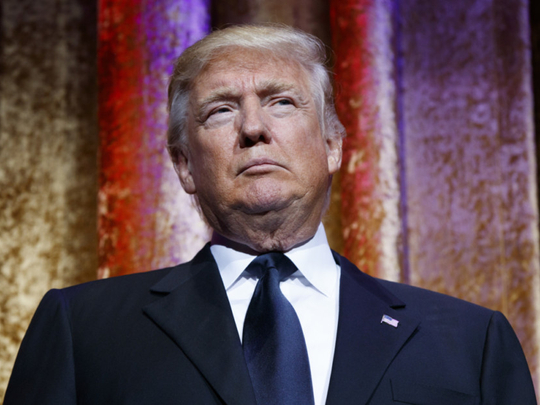
Even before his historic inauguration on Friday as the 45th president of the United States, Donald Trump has already ignited a number of unnecessary confrontations with potential foes at home and abroad. During his first post-election press conference last Wednesday, the president-elect could not avoid lambasting the media, at least the ones perceived to be working against him by publishing the contents of, or referring to, a leaked intelligence synopsis on the findings of a British ex-MI6 agent who alleged that the Kremlin held sensitive and potentially embarrassing material on the real estate mogul even before his maverick claim to the presidency.
Trump’s audacious shrug of CNN’s repeated attempts to ask him a question underscored the man’s nonconformist ways of dealing with the media, just as he did during the campaign with the likes of the Washington Post, New York Times and NBC, among others. No previous US presidential candidate in modern era has risked engaging in open duel with the mainstream media as Trump has done. But even if an eccentric candidate, such as the New York billionaire, could afford to do so as a populist campaign tactic, the question is, can the future tenant of the White House risk turning the media into an enemy while believing that he can win the day?
During the same press meet, Trump criticised America’s intelligence community, and not for the first time, and went as far as accusing them of employing Nazi German methods in sullying him. For the future president of America, someone whose foreign policy decisions will rely heavily on sensitive briefings by the very same agencies, to openly and repeatedly criticise the intelligence community is simply unprecedented and unheard of.
Trump’s impetuous behaviour is certainly a cause for concern to many top US officials, including key representatives of his Republican Party. During the Senate confirmation hearings, almost all of his top picks contradicted him on what can only be described as a naive approach to Russia and its President Vladimir Putin. Most saw Russia as a foe presenting a danger to US interests all over the world and to America’s European allies. All defended the anti-Moscow sanctions that the administration of President Barack Obama had imposed following the unilateral annexation of Crimea. And yet, Trump tweeted later that he could lift the sanctions if Russia cooperated with the US in the war against terror.
In fact, Trump’s use of his favourite mass communications tool, Twitter, has become his personal trademark; one that will distinguish his presidency if he continues to tweet his bombshells at the small hours of the day; bypassing his advisers and his own press secretary. Trump’s belief that as a Twitterian-in-Chief he could get around a hostile mainstream media, Congress and even his closest advisers and reach directly to his grass-roots base will become an obsession as he navigates through some tough domestic and foreign policy decisions. His twitter attack against a civil rights icon, Senator John Lewis, who is among a number of Democratic lawmakers who plan to boycott the inauguration, raised eyebrows not because of Lewis’ past history and high regard, especially among African Americans, but because of Trump’s un-presidential etiquette and his readiness to drop everything at hand and engage in petty skirmishes with critics.
When George W. Bush won the controversial 2000 presidential elections, the liberals in America went on the attack, fearing the rise of what became known as the neo-cons. But Bush Jr. was an insider, albeit a contentious figure and he played the Washington game smartly and carefully. Obama, being the first Black American president, was also a Washington insider who, despite facing an unfriendly Congress during his second term, had stuck to the Washington rules and ignored much of the seething attacks waged against him by Capitol Hill Republicans and even some Democrats.
But Trump does not trust the very institutions that he will now become a part of. His outsider trait, which provided him the populist support that delivered him the White House, will weigh heavily on him. Soon, and it will be sooner than many believe, he will have to wage battles against lawmakers, lobbyists and foreign leaders, many of whom are America’s allies. The liberal media will be up in arms and Sunday talk shows will focus on his follies and gaffes. In the words of his defeated rival, Hillary Clinton, Trump will prove to be thin-skinned. He will also become paranoid, trusting very few people, namely his son-in-law and daughter, more than anyone else. He will avoid press conferences and will resort to tweeting in the hope of keeping his ties with his populist base alive.
The main challenge for Trump’s presidency will be the character of Trump himself: His insecurities, paranoia and tendency to attack his critics. These traits will play as he is forced to make foreign policy decisions. The real calamity is that even when he is wrong, he will find cheerleaders among few in Congress who will never admit that America’s choice in November was the wrong one!
— Osama Al Sharif is a journalist and political commentator based in Amman










